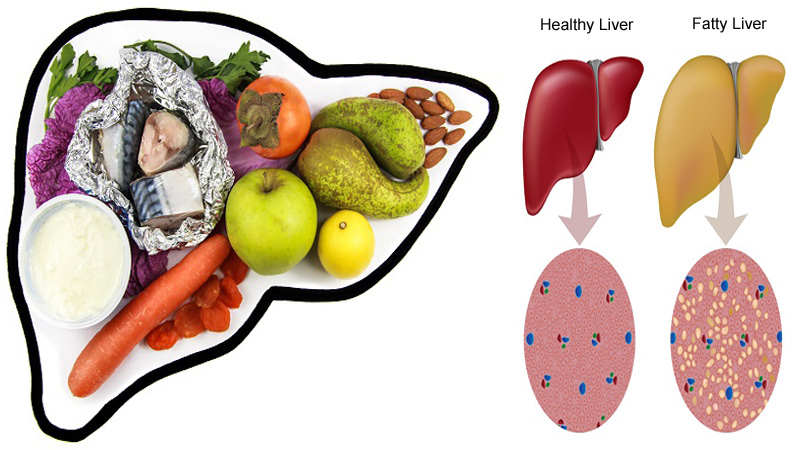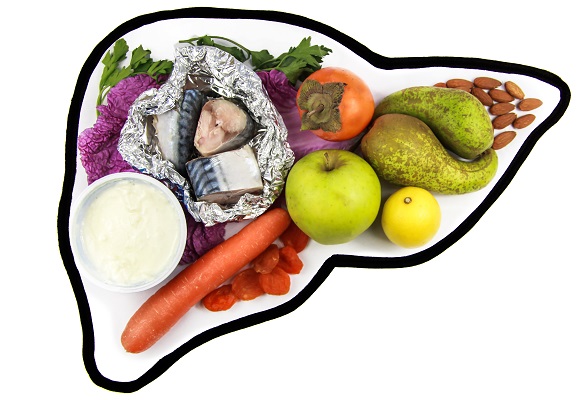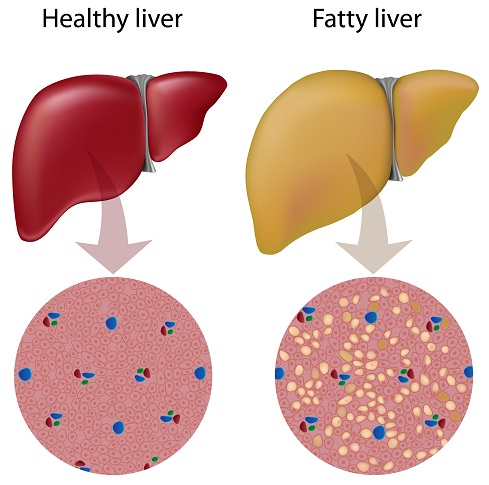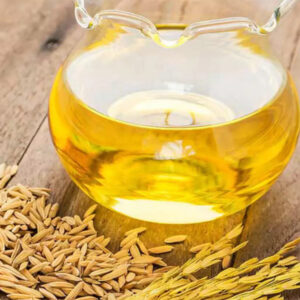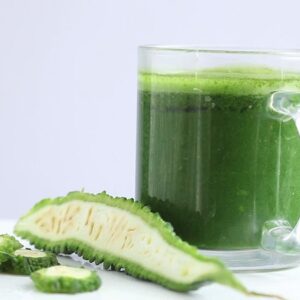The liver is the work house of the body. Numerous functions such as converting the food to fuel, making proteins that aid in curing blood clots, filtering harmful toxins, producing bile etc. are performed by the liver. Sadly, this powerful organ is susceptible to a severe condition called fatty liver. In simple terms, Fatty Liver is a condition where fat builds in the liver. Though it is highly probable in people who consume too much alcohol, it can develop due to several other reasons. When fatty liver is caused due to reasons other than alcohol consumption, it is termed Non-Alcoholic Fatty Liver Disease or NAFLD. Fatty Liver is also known as the silent killer as it grows very slowly with little or no symptoms until it reaches a critical stage. However fatty liver is curable. Here we listed 10 simple and best tips to prevent fatty liver disease naturally.
Best Tips To Prevent Fatty Liver:
Prevention is better than cure. Hence here are a few preventive measures that will help you in preventing the fatty liver condition.
- Lose Weight: If you are overweight then try to lose those excess pounds by reducing the intake of calories and increasing physical exercise.
- Follow a Healthy Diet: Eat a diet that is rich in whole grains, fruits and vegetables. Track your calorie intake.
- Exercise: A minimum of 30 minutes of physical workout is necessary to stay it and keep diseases at bay.
- Keep Diabetes in Control: If you have diabetes, then follow your doctor’s instructions strictly and pay a regular visit to him. Take your medicines regularly and monitor your blood sugar closely.
- Keep a Check on Cholesterol: Control your cholesterol by following a healthy regime.
- Protect the Liver: Avoid doing things that will put stress on your liver such as alcohol, smoking, etc.
- Limit consumption of alcohol.
- Consumption of beverages with sugar.
- Excess belly fat/obesity.
- Insulin resistance.
Simple and Best Tips To Prevent Fatty Liver:
Fatty liver is caused when excess fat is accumulated in the liver cells. If this fatty liver is not treated in time, it might end up in a disease as chronic as liver cancer or cirrhosis. Here are the 10 best tips to prevent fatty liver.
1. Anti-Inflammatory Ketogenic Diet:
One of the best strategies to reduce fatty liver or reverse fatty liver is to follow a ketogenic diet. It is a healing diet that excludes inflammation-causing foods and adds non-GMO vegetables, healthy fats and clean proteins.
Proven benefits of the ketogenic diet are:
- Increased fat burning
- Reduced inflammation
- Increase in energy level
- Reduced cravings
- Anti-ageing effects
- Clear skin
- Reduced risk of any chronic diseases
- Mental clarity and sharpness
- Mitochondrial Biogenesis.
2. Intermittent Fasting:
Intermittent fasting has many health benefits associated with it. Intermittent fasting boosts immunity, improves genetic repair mechanisms, reduces the risk of chronic diseases and improves insulin sensitivity. It can also fight and reverse fatty liver disease. You can begin with simple 12-hour fasting for the first couple of weeks and then, later on, increase it once your body adapts to not eating for a certain period of the day.
The following are the benefits of intermittent fasting:
- Heal the gut
- Reduce inflammation
- Improvement in the hormonal sensitivity
- Increase in growth hormone
- Make your body a fat burner
3. Consuming Liver Healthy Food:
The addition of liver healthy foods in the anti-inflammatory nutrition plan is the best way to heal the liver.
The list of foods hereunder is best for your liver:
- Liver of organic pasture-raised animals
- Chicken liver.
- Beef liver
- Fish liver
- Other edible livers such as mutton, goat, lamb, and goose.
- Cruciferous vegetables such as cauliflower, broccoli, kale and brussels sprouts are great for a healthy liver.
- Citrus fruits like lemons, grapefruit, limes and berries such as blueberries and cranberries.
- Fatty fish such as salmon.
- Coffee
- Green tea
- Olive oil
- Nuts
- Chlorella and Spirulina
4. Improving Gut Health:
Improving gut health is vital for a healthy liver. If the gut is damaged, then the gut lining becomes more porous which allows the undigested food, bacteria, and fungi to enter the bloodstream which ultimately heads to the liver putting a load on the same.
Following are the measures that should be taken in improving gut health.
- Following an anti-inflammatory ketogenic diet is the first step toward improving gut health.
- Adding high-quality probiotics to protect and heal the gut.
- Using gut nutrients such as Aloe Vera, liquorice and L-Glutamine soothe the irritated gut lining and support a healthy gut.
5. Castor Oil Pack:
The castor oil pack boosts the body’s natural detoxification process by reducing inflammation, improving liver function and strengthening the body’s immune system. Castor oil is made up of photo chemicals and includes fatty acids namely ricinoleic acid. This ricinoleic acid which forms 90% of its chemical structure gives the castor oil its unique healing properties.
This is how you can make and use the castor oil pack:
- Choose a clean place where you can lay down comfortably and cover it with a towel to avoid messing up in case the oil drips.
- Use a flannel large enough to cover your abdomen and saturate it with castor oil in a manner that no oil is dripping.
- Lie down on the protected surface and cover your abdomen with this flannel in a manner that the right side of your abdomen is complexly covered.
- Cover the flannel with plastic.
- Place a heating pad on the plastic and stay that way for 45 minutes to 2 hours.
- Once done wash your stomach with soapy water.
- You can store the flannel in an airtight bag in the fridge and add castor oil as and when required to keep it saturated.
- Repeat this process for at least 3 days in a row in a week and continue for a month for best results.
6. Epsom Salt Bath:
Epsom salt has been used for over 100 years for its magical benefits. It reduces inflammation and improves gut health. The unabsorbed magnesium creates a laxative effect and thereby aids in cleaning the bowel.
This is how you take an Epsom salt bath:
- Make sure you have a minimum of 40 minutes time before you go for an Epsom salt bath. This is because the body needs 20 minutes to remove the toxins and in the next 20 minutes the body will be absorbing minerals from the bath water.
- Fill up the tub bath with warm water.
- Add some 1 to 2 cups of Epsom salt to the water.
- Also, add ½ cup of olive oil as it is very good for the skin.
- Never use soap with Epsom salt bath as it interferes with the detoxification process.
- Try to rest for a couple of hours after the Epsom salt bath.
7. Optimal Hydration:
Staying hydrated that too with clean filtered water is very important to treat a fatty liver. Water is great for the overall body also. It supports many important functions of the body such as flushing the toxins out of the body, increasing the delivery of oxygen to various cells and supporting the body’s natural healing process.
8. Optimise Sleep:
Lack of proper sleep and chronic stress can impact the overall health of your liver negatively. Thus managing stress and getting adequate sleep aids in improving the overall health of the liver.
9. Optimise Stomach Acid and Bile Flow:
For a healthy liver, it is important that you have a good bile flow and sufficient stomach acid.
The following are the ways through which you can improve stomach acid and bile flow.
- To Optimize stomach acid:
- Use liquid nutrition
- Stay hydrated outside the meal times
- Use ginger
- Don’t drink water immediately after a meal
- Use lemon and apple cider vinegar
- Begin your meal with protein food
- Eat fermented veggies
- Eat your largest meal at a time when you are most relaxed
- To increase the bile flow:
- Bile is a fluid which is made by the liver and is secreted into the biliary tract. Bile gets stored in the gallbladder.
- Bile helps in breaking down fats into fatty acids which can be absorbed by the digestive tract.
- Bile contains cholesterol, bile acids and bilirubin along with water, potassium, sodium salts, copper and traces of some other metals.
10. Liver Support Nutrients:
To enable proper functioning of the detoxification path of the liver it is inevitable that it is supplied with certain nutrients. Getting these nutrients from food and supplements is vital for liver health. The following are the nutrients required by the liver at its various stages of the detoxification process:
Stage 1:
- B Vitamins
- Folate
- Glutathione
- Anti-oxidants such as milk thistle
- Carotenoids
- Vitamin C
- Vitamin E
- Zinc
Stage 2:
- Selenium
- Sulphur
- Amino Acids
- Glutamine
- Glycine
- Taurine
- Cysteine
- Methionine
- Magnesium
- Vitamin B12
- Molybdenum
Those described above are the best tips to prevent fatty liver. It is vital that one includes foods and herbs in the daily diet and follows an anti-inflammatory ketogenic diet. Foods such as refined sugar, alcohol, trans-fats, processed foods, farm-raised fish and GMO foods should be strictly avoided. If you take care of your liver, the liver will take care of your body and keep hundreds of diseases at bay.
Frequently Asked Questions:
Question 1: What is fatty liver and how is it formed?
Answer 1: Fatty liver is a condition where fat builds up in the liver. Fatty liver is caused when excess fat is accumulated in the liver cells. If this fatty liver is not treated in time, it might end up in a disease as chronic as liver cancer or cirrhosis.
Question 2: Is fatty liver dangerous?
Answer 2: Fatty liver is dangerous, and if not treated in time it can lead to diseases as chronic as cirrhosis and liver cancer. The liver is a workhouse of our body, and it controls many vital functions such as converting food to fuel, filtering harmful toxins, production of bile etc. If the liver fails, then there will be no filtration of toxins into the body causing many serious ailments.
Question 3: What is fatty liver and how does it form?
Answer 3: Fatty liver is otherwise known as hepatic steatosis. Non-alcoholic steatohepatitis and simple fatty disease lead to NAFLD. The main risk factors for NAFLD are obesity, diabetes and old age. People with increasing body weight and a diet rich in processed sugar and less physical activity end up with fatty liver. It develops when fat cannot be metabolized efficiently. Genetics has a part to play in fatty liver problems.
Question 4: Is fatty liver curable?
Answer 4: When we treat fatty liver-causing conditions like obesity, high cholesterol and an unhealthy diet, the liver has the capacity to heal itself. With appropriate lifestyle modifications, the liver can repair the damage. New liver cells are rebuilt to replace the damaged ones. A healthy diet and exercise go a long way in treating fatty liver disease. Self-care is of utmost importance.
Question 5: What are the signs of fatty liver?
Answer 5: There are several warning symptoms one can watch out for in fatty liver disease. Some of the symptoms are blood vessels being enlarged beneath the surface, swelling of the abdomen, yellowing of eyes and skin, red palms, dull pain in the upper right area of the abdomen, enlarged breasts in men, and a dull pain leading to backache.
Question 6: Is long life possible with fatty liver disease?
Answer 6: There are people with nonalcoholic fatty liver disease who live with fat in their liver without ending up with liver damage. Some people end up with NASH which would take years to develop. Nonalcoholic fatty liver disease is the prime risk factor for cardiovascular disease and it is known that people usually end up dying of heart failure more than they do of liver disease.
Question 7: Can fatty liver be repaired naturally?
Answer 7: A choice of a healthy diet along with maintaining healthy body weight and exercising regularly go a long way in healing fatty liver naturally. Avocado, tofu, and greens are vital and should be added to one’s diet. Fruits like lemons and oranges, walnut and food rich in Omega-3 are vital in the natural healing process.

